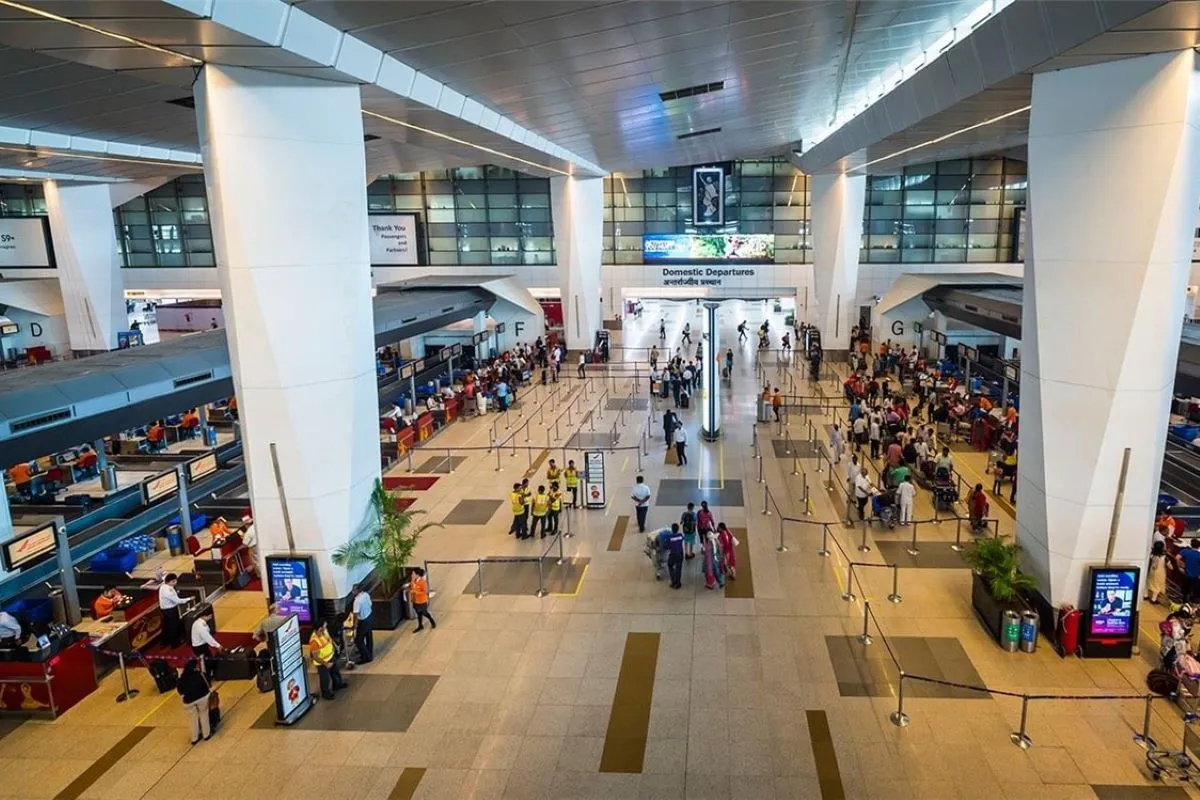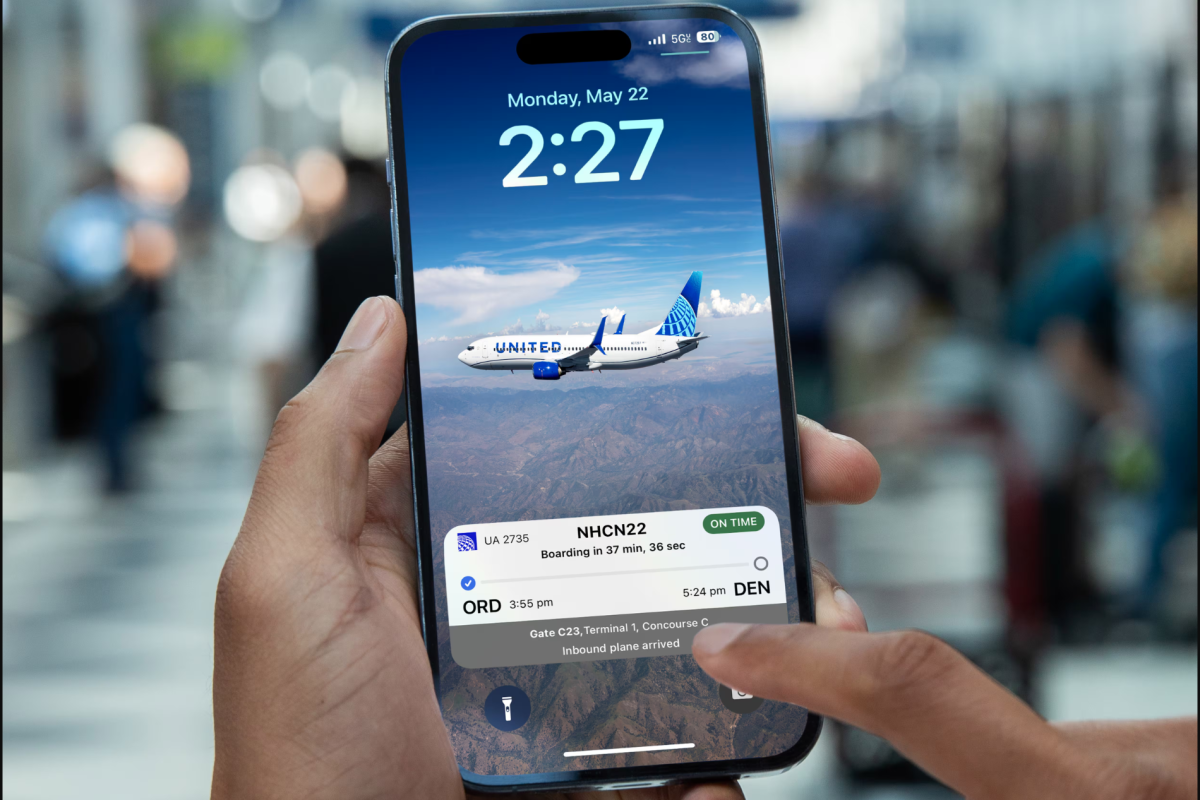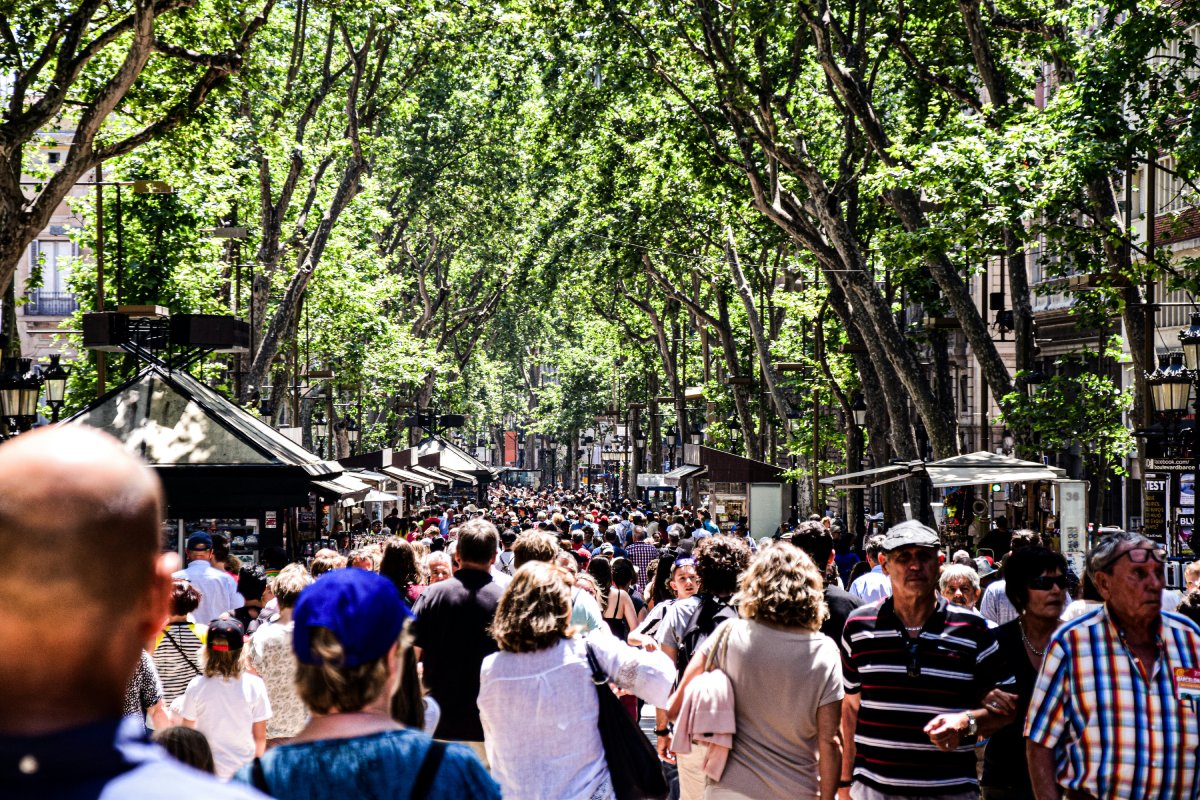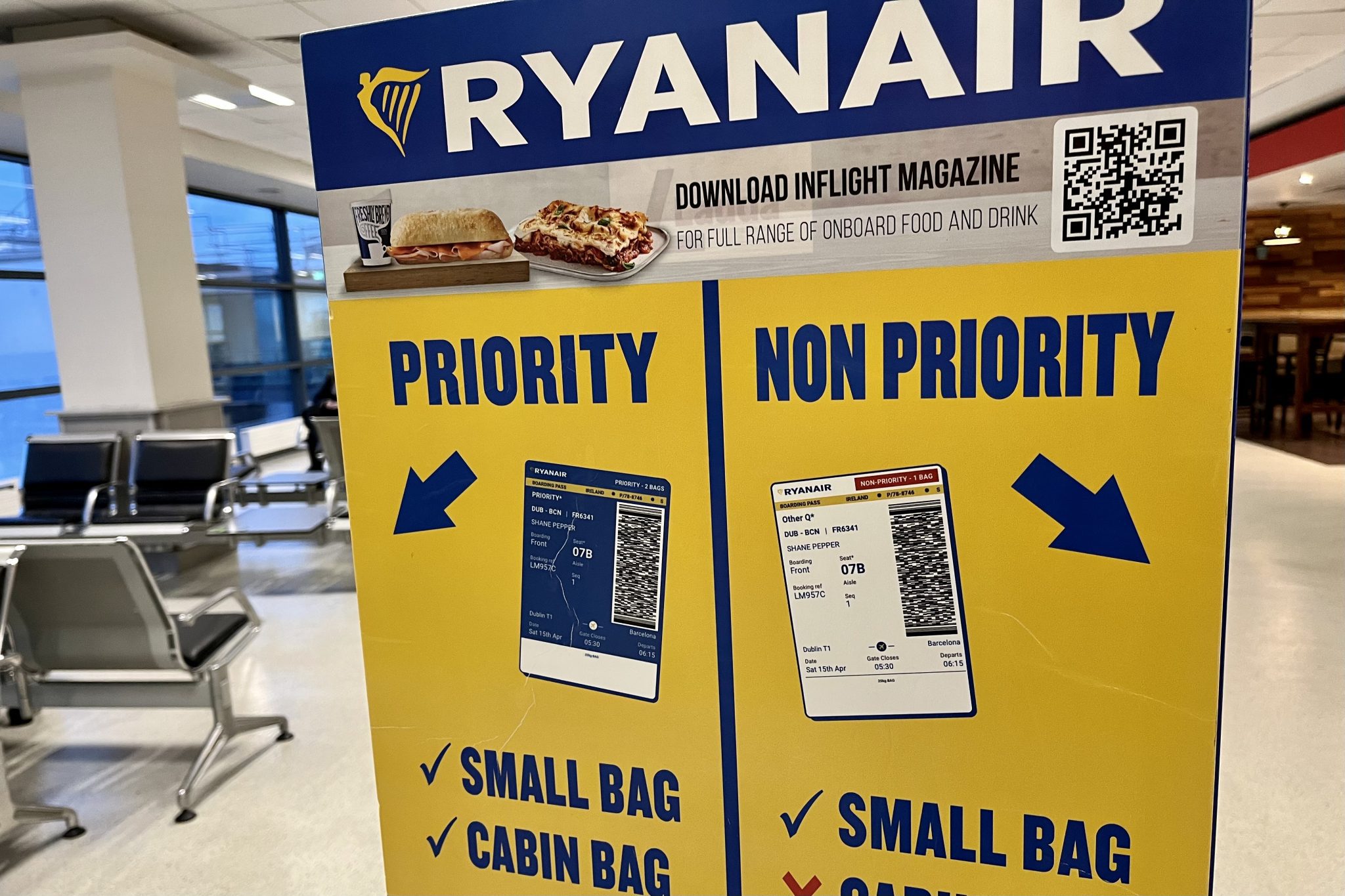Renaissance Hotels' New Flagship Adds 'Minority Report' to the Guest Experience
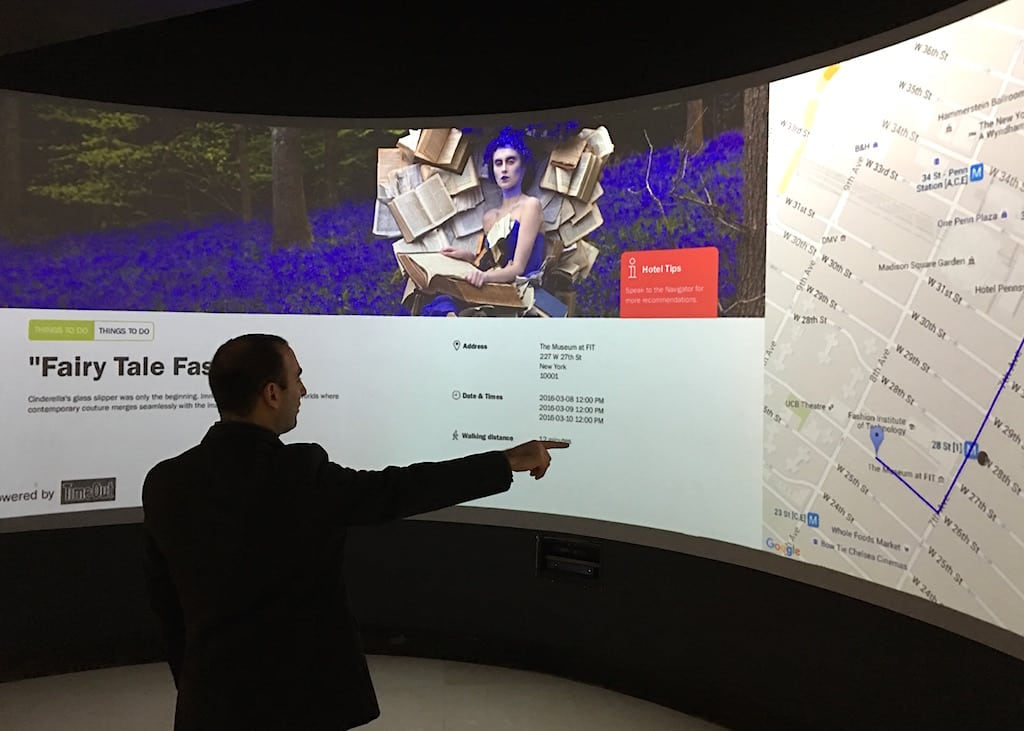
Skift Take
Every morning at 4 a.m., the server at the new Renaissance New York Midtown Hotel pings the server at the Time Out New York media company to pull new travel and event content into the hotel’s groundbreaking digital theater experience using "ambient intelligence."
For years in the hospitality industry, techies have pointed to the movie "Minority Report" to illustrate the future of sentient buildings that personalize the user experience by recognizing its inhabitants. This is what the beginning of that looks like.
Ambient intelligence leverages the growing sophistication in today’s camera technology, face recognition software, and artificial intelligence to interact with humans — without accessing a person’s device via traditional beacon sensor technology.
Upon entering the Renaissance, which opened Monday as the brand’s new flagship hotel, guests walk past the lobby through a long corridor with 22 camera sensors and 20 speakers. As you walk, the sensors track your XYZ position in 3D space, and then the wall creates sounds and graphics around you in a kind of sensory soundtrack bubble.
For general guests, as the system works now, the experience is mostly atmospheric. For corporate and social groups, however, the content can be customized to a particular company’s strategy or group’s identity that engages people as they traverse the hall.
Potentially down the road, each individual guest could be identified using face recognition technology and the ambient ecosystem pulling contact information from faces stored in a general opt-in database, like a Marriott loyalty program, for example.
“New ambient intelligence, and you will hear this word more and more, is not based on one single technology,” says Roger Parent, president of Réalisations Inc. in Montreal, who developed the Renaissance digital experience and similar technology for The Met Opera, Cirque du Soleil, and the See Forever Theater at One World Trade Center.
“We have multiple different systems with different sensors,” he told Skift. “These sensors are not beacons, which require a connection with a guest's bluetooth device. With this, I don't know your credit card number, and I didn't tap into your phone. I didn't give you a device to put in your pocket, and I'm not tracking the key to your hotel. I'm doing everything ambiently.”
Renaissance Ambient Intelligence
Here's the cool part, presently. The signature ambient intelligence experience at Renaissance Midtown is the crescent-shaped alcove with a video wall in the middle of the main corridor.
Guests first stand in one of six light bubbles on the floor depicting different parts of the day and different distances from the hotel. Raising your arms to create a "T" activates the interactive experience that begins by pulling up multiple content panels on the big screen.
Those panels show Time Out New York content that's tagged with the categories aligned with the light bubbles you're standing in on the floor. So, say you chose "Evening" or "30 Minutes Walk" to stand in, then the video wall might show content highlighting a play in nearby Central Park.
If you're interested in any one specific piece of content, you point to it to expand the frame for more detailed information and a Google Map showing how to get there from the hotel.
"Time Out might also have a Best Local Bartender or Best Burger competition for people to check out," David DiFalco, GM of Renaissance New York Midtown, told us during our test drive. "So once you find a few options that seem interesting, you can go up to the sixth floor and ask one of our Navigators (concierges) for their opinion."
That merging of offline and online experiences is the one big overarching trend that's impacting all sectors of travel moving into the future. Because the travel and event content here is updated daily, which is especially important for special events, that makes this potentially a more spontaneous and richer experience for guests to personalize their stay.
Another immersive activation occurs when you put one hand over your eye in front of the video wall. That commands the built-in camera to display a photo of your face on the top screen, which it also sends to the bartenders on the sixth floor. The experience is designed to drive traffic to the sixth floor lounge where the bartenders will recognize guests and give them a discounted drink for using the system.
Just how will this work? No one knows yet, because this is proprietary tech that hasn't been tested out in a hotel space before. And as of now, there has been no discussion with Parent to scale this product across the Renaissance portfolio.
"We try to do one-of-a-kind things for one-of-kind-clients, and the reason why they do this is because they want to differentiate their offer from the other guy who's selling beds, or whatever," Parent said. "But whatever we think we know about people, we don't know how they're going to use something. So will they engage with it, will they get it? Will they click a couple times and leave, or will they stay there for 10 minutes and there'll be a lineup? We don't know."
We'll know soon enough. If this engages guests significantly, expect to see it scale across the brand. The ambient intelligence-curated destination content aligns well with the Renaissance brand's "Discovery" theme and its target audience of creative professionals.

